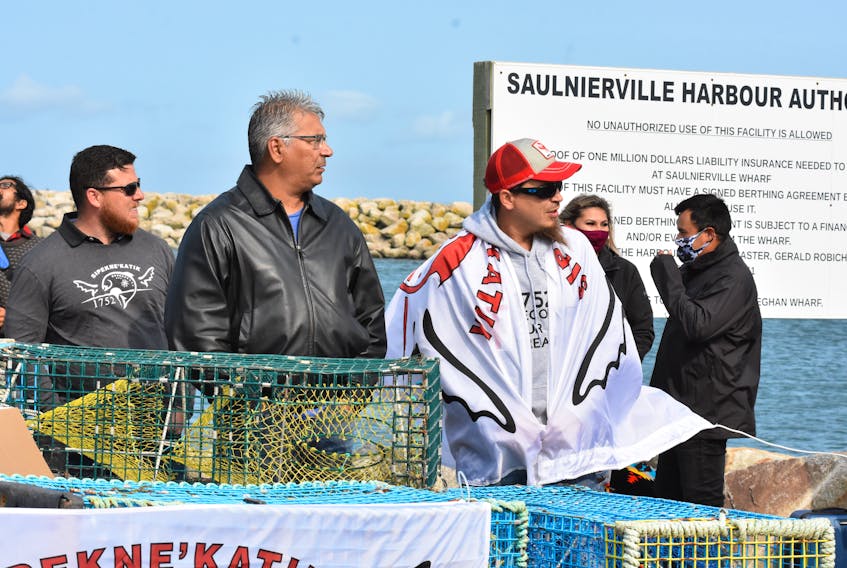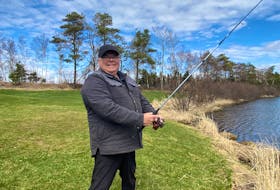Federal Fisheries Minister Bernadette Jordan has agreed to begin negotiations next week on implementing Sipekne’katik First Nations' moderate livelihood fishery, according to the band's operations manager.
“We plan on starting negotiations next week on implementing our moderate livelihood management plan,” said Rhonda Knockwood on Wednesday.
The move to formal negotiations would be a major step toward the realization of a right acknowledged by the Supreme Court of Canada in its Marshall decision.
For the 21 years since the decision, which acknowledged the right of Mi’kmaw and Maliseet to make a moderate livelihood off natural resources, successive federal fisheries ministers have instead opted to buy up commercial licences and offer them, along with training, to First Nations.
Over $540 million has been spent by Fisheries and Oceans since 1999 on these programs.
According to a 2017 filing with the Impact Assessment Agency of Canada regarding a proposed offshore drilling project, Sipekne’katik First Nation has 15 lobster licences (nine in Lobster Fishing Area 34, three in LFA 35, two in LFA 33 and one in LFA 32).
It also has five scallop licences for the Bay of Fundy, 10 swordfish licences, one tuna licence and two sea urchin licences.

Knockwood acknowledged Wednesday that the Sipekne’katik First Nation leases most of its valuable lobster licences to non-aboriginal fishermen.
“It’s a bidding process,” said Knockwood.
“So whoever has the best bid goes out on the water.”
According to sources in the commercial fleet, licenses in area 35 typically lease for around $250,000 a season and upwards of $70,000 in area 34.
Those licences have to be fished within the seasons set by Fisheries and Oceans.
The moderate livelihood fishery being sought by Sipekne’katik would have seasons set by the band.
Commercial fishermen have contended that their seasons are set for conservation purposes because the lobster molt during the summer months.
Those fishermen have spent the past weeks seizing and cutting lobster traps owned by the Sipekne’katik fleet that has been attempting to start its own self-regulated moderate livelihood fishery.

Fisheries and Oceans and RCMP officers have been watching the struggle between the fleets, which has seen vessels rammed and threats exchanged, but haven’t intervened on either side.
Despite the boiling tensions and violence on the water, Fisheries Minister Bernadette Jordan has remained in Ottawa. Her parliamentary secretary said Tuesday it hadn’t been an option for her to return home to Nova Scotia to address the feud because she would have to self-isolate once she got here and she had to be in Ottawa for Wednesday’s throne speech.
Commercial fishermen are accusing her of pitting communities against one another over a resource and then watching them fight it out instead of governing.
“No matter what side you are on, the ball is clearly in the minister’s court,” said Colin Sproul, president of the Bay of Fundy Inshore Fishermen’s Association.
“She’s sitting back and allowing Nova Scotian fishing communities to be shattered for political gain ...”
Questions to Jordan’s office about its consultations with First Nations over a moderate livelihood fishery were directed back to news releases.
As well, staff at her office said that commercial fishermen’s organizations would not be part of the consultation process because it is being conducted nation to nation.
Like on the Acadian southwest shore, where the dispute has played out thus far, lobster is also king in St. Peter's Bay, Cape Breton, where the Potlotek First Nation plans to fish.
The Cape Breton band has sent its management plan to Fisheries and Oceans and intends to start a moderate livelihood fishery on Oct. 1.
The Richmond County Inshore Fishermen’s Association is meeting Thursday morning to discuss its response.
The association’s president, Gilbert Boucher, also had harsh words for how the fisheries minister has “not handled” the impasse.
“It’s a disgrace,” said Boucher.
“You can’t just ignore the inshore fishermen.”
He added that whatever he thought of the fisheries minister, he and his members have “ a lot of respect for the First Nations people” and for Potlotek chief Wilbert Marshall.









